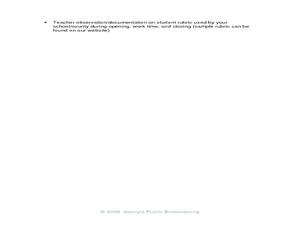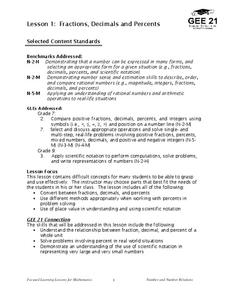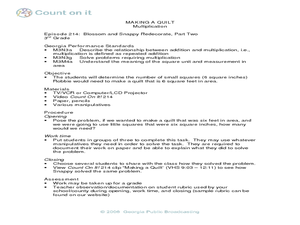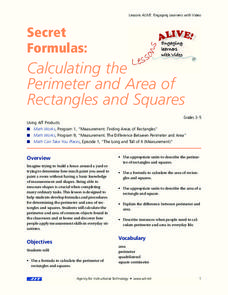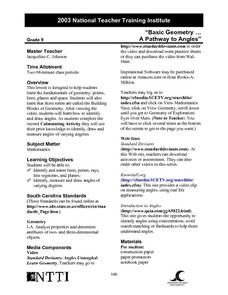Curated OER
The Weight of Primates
Second graders practice their problem solving skills. In this addition and subtraction skills lesson, 2nd graders solve word problems that require them to find differences and sums. This lesson features the use of a video titled "Blossom...
Curated OER
Length Addition and Subtraction Word Problems
These measurement word problems can be tricky! Scholars will need to keep track of numbers as they determine who has the shortest bed, the longer car key, and a bus longer than nine meters. For each, there is an image depicting the...
Teach Engineering
Bone Density Challenge Introduction
Can you use X-rays to measure bone mineral density? This is the essential question that learners must answer in the first installment of a seven-part series. They brainstorm ideas about necessary background information and what they...
Curated OER
Polygons
Young scholars investigate the concepts related to the study of polygons. They specifically look at how angles is related. The lesson includes specific examples and dialogue to be used by the teacher during direct instruction and...
Curated OER
Fractions, Decimals and Percents
Young scholars investigate the differences when using decimals, fractions, and percents. They focus on the process of using them in real problems and how to convert them from one form to another.
Curated OER
Making a Quilt: Multiplication
Third graders explore their multiplication skills. They will use their problem solving skills to solve an everyday math problem that requires them to multiply numbers. This lesson incorporates the use a video titled "Blossom and Snappy...
Curated OER
Candy Bar Math Fun!
Students practice math. In this measurement instructional activity, students measure their favorite candy bars to the nearest inch. They work independently to compare the different lengths of the candy bars they measure.
Curated OER
Secret Formulas
Learners calculate the perimeter of rectangles and squares. They imagine trying to build a fence around a yard or trying to determine how much paint they need to paint a room. They also develop formulas and procedures for determining the...
Curated OER
Just a Minute!
Students put the standard measure of clock time -- the minute -- in perspective. This lesson can be modified for virtually any grade level. They write about what they learned about a minute as a result of the activities.
Education World
Teaching Students to Tell Time: Three Resources for Busy Teachers
Elementary schoolers develop time-telling skills, one skill at a time. They examine the connection between time on digital and analog (clock-face) clocks. An excellent lesson plan on teaching how to tell time!
Utah Education Network (UEN)
Candies R Us
A box is fun to make, especially when it's a candy box! These activities help to cement understanding of the difference between surface area and volume. Have individuals measure the surface area of their box in two-dimensions before...
Curated OER
Tiling Tessellations
Young scholars explore tessellations. In this shapes and geometry lesson, students describe the attributes of many of the shapes displayed on an Elmo. Young scholars create examples of tessellations using pattern blocks.
Curated OER
Map Your School
Learners participate in a project to map their school. They measure and graph various areas around the school. Learners find the longitude and latitude of the school and research the school's history, and highlight special important areas.
Curated OER
What a Square
Students examine the painting "Old Man With A Gold Chain" by Rembrandt. They identify geometric shapes in the painting, measure these shapes and compare the relationships of these measurements.
Curated OER
Are You My Little Peanut?
Fourth graders explore the mass and length of peanuts by pretending to parent a peanut. In this mode, median and range lesson students graph their measurements and then use them to find the mode, median and range. Students discuss peanut...
Curated OER
Basic Geometry ... A Pathway to Angles
Help 9th graders identify lines, points, rays, and planes in geometry. They practice identifying, measuring, and drawing angles of different degrees. This is a fundamental lesson to help students learn the building blocks of geometry.


